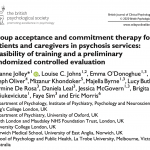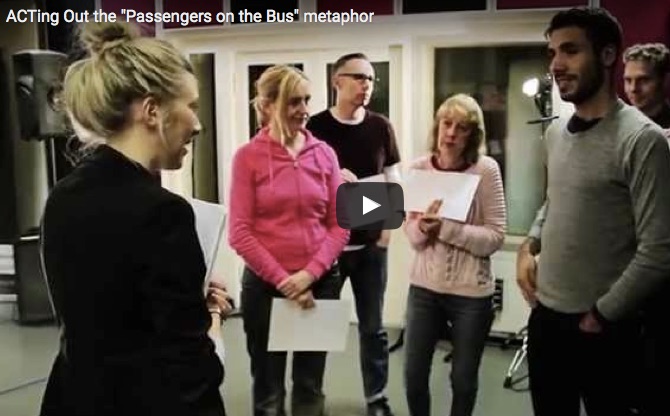Group acceptance and commitment therapy for patients and caregivers in psychosis services: Feasibility of training and a preliminary randomized controlled evaluation [paper]
Very pleased to have this paper published, summarising the evaluation of group Acceptance and Commitment Therapy for people with psychosis and caregivers. [pre-print here] This study was conducted in Lambeth & Southwark community mental health teams in the South London & Maudsley NHS Foundation Trust, United Kingdom. The study is funded by a grant from …






